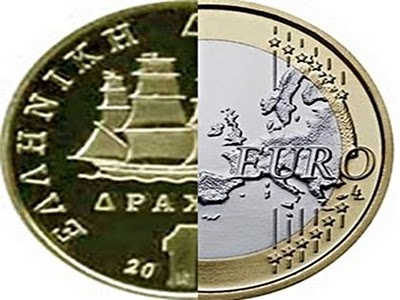
On April 17 I wrote about a conversation with an individual who lives in Athens. He had this to say about the coming Greek elections:
“The other parties are communists, radicals and crazies. If they have a hand in the new government, then on May 7 Greece will be forced to take dramatic steps. The whole idea that the country should suffer, so the bankers can get paid will have to change.”
He also said this:
“The attitude in Brussels and Bonn towards Athens will change after the election as well!”
He had that right, so I called him back to get an post-election update.
BK: Is it true that you will soon spending Drachmas?
Athens: This seems to be the only possible outcome. Germany will no longer support Greece, neither will the IMF.
BK: What would the new Drachma be worth in Euros?
Athens: Far less than the rate that was used to convert Drachma to Euros in 2001. At least 50% less. For Greece, the exchange rate for the Euro will be the key, but you can’t forget that the Drachma will also have a new exchange rate for the dollar.
+
Greece joined the Euro in 2001 at a fixed conversion of 341Greek Drachmas to the Euro (EURGDR). In the period preceding the link, the USDGDR was 328.
Assume the Drachma floats freely and promptly loses half of its value versus the Euro. The market rate would be EURGDR 682. If the EURUSD was trading at 1.3000 it would mean that the USDGDR would be 568. The GDR would lose half its value against the Euro but it would only lose on 37% versus the dollar. I asked the fellow from Athens about this:
Athens: There is the proof. The Euro is too high against the dollar.
I thought that was an interesting comment. I went back and looked at the original conversion rates to the Euro for France, Italy and Spain and compared them to what the USD exchange rates would be today:
To Read More CLICK HERE













